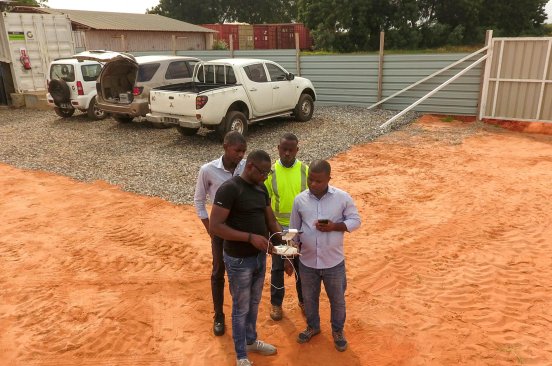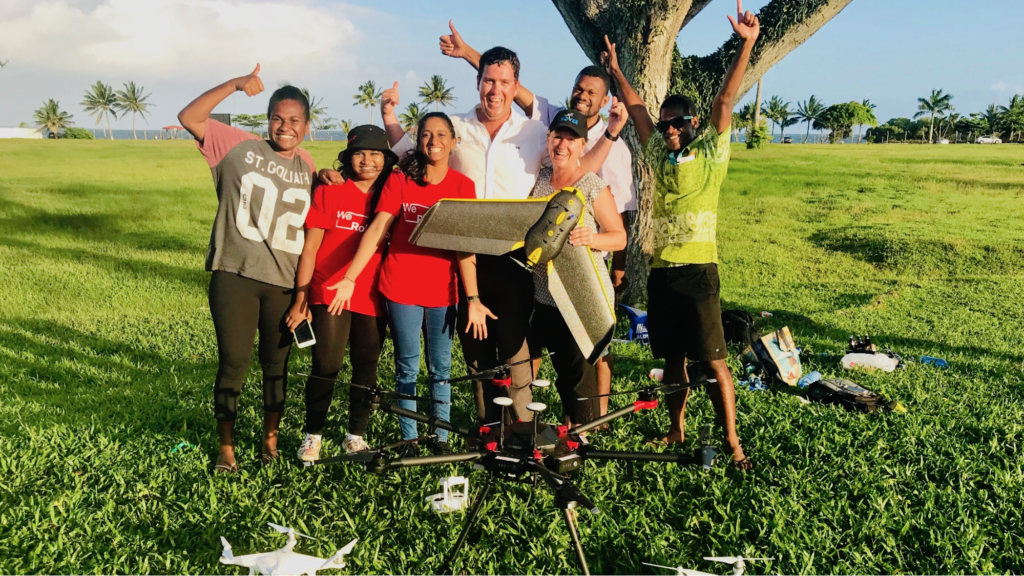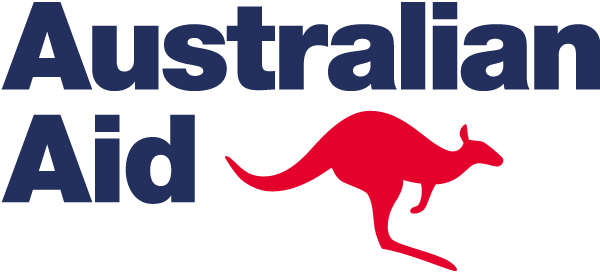
Doubling the Number of Local Drone Pilots in the South Pacific
The South Pacific Flying Labs team successfully completed certification training and are being issued with both Fiji and Australian-certified RePLs.
December 14th, 2018
There are still very, very few local drone pilots in the South Pacific who hold a drone pilot license. As a result, when Cyclones barrel through the region, international organizations like the World Bank typically hire foreign drone companies to carry out aerial surveys of the disaster damage. This is true of other disaster prone regions too.

While these companies certainly have highly experienced drone pilots, they can take weeks to deploy and are often unable to continue working through the recovery and rebuilding phases, due in part to limited budgets. In contrast, local drone pilots can deploy within hours, know the local language and culture, have lower overheads and do not disappear after the first week of relief efforts. As such, building local capacity in the safe and effective use of drones is far more sustainable and thus more impactful than relying exclusively on foreign interventions. This is true for the use of drones in disaster response as well as development, public health and environmental protection.
WeRobotics is thus building a global network of Flying Labs in Africa, Asia, Latin America and Oceania to build this capacity and create more opportunities for local experts. By joining these labs, local experts gain the skills and leadership opportunities to make a positive difference in their countries.
The majority of Flying Labs have already completed the theory training required for a drone pilot license (or remote pilot license, RePL). The remaining labs will complete this training early next year. In addition, Flying Labs in the South Pacific and East Africa have recently completed their full, in-person RePL certification training through the Australian Civil Aviation Safety Authority (CASA) and the UK’s Civil Aviation Authority (UK CAA) respectively.
This explains why we were in Fiji last month with our good colleagues Jackie Dujmovic from Hover UAV and Ross Anderson from Aviassist. Ross and Jackie led a 5-day professional, hands-on training that included both multi-rotor drones and fixed-wing drones. South Pacific Flying Labs Coordinator Amrita Lal and her 4 colleagues successfully completed the certification training and are being issued with both Fiji and Australian-certified RePLs.
The training was rigorous and often meant 12-hour work-days. But Amrita, Aleen, Tarish, Semisi and Wise (3 women, 2 men) passed with flying colors. In addition, Jackie worked directly with Amrita on developing additional standard operating procedures to facilitate coordination and maintenance.
In coming months, Amrita and team will also be taking a new version of the 7-week online training on drones in humanitarian action to refresh their knowledge. This combination of offline and online training is an important example of how WeRobotics invests in local leaders like Amrita, Aleen, Tarish, Semisi and Wise. So stay tuned for exciting updates on new projects being launched at South Pacific Flying Labs. In the meantime, huge thanks to Jackie and Ross for their invaluable support. They are both highly experienced professionals and absolutely delightful to work with. Equally importantly, they genuinely care about helping Amrita, Aleen, Tarish, Semisi and Wais follow their dreams.
South Pacific Flying Labs is funded by the Australian Government Department of Foreign Affairs and Trade’s (DFAT) innovationXchange (iXc) through the MIT Solve Challenge. We sincerely thank DFAT for their kind support and also express our sincerest gratitude to the Civil Aviation Authority of Fiji (CAAF) for approving the flight permissions ant NOTAMs for this training.


Category(s)
Location(s)
Recent Articles
View All »

Preserving Senegal's Mangroves: Aerial Mapping in Somone Marine Protected Area
